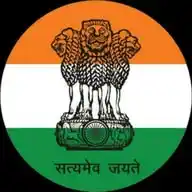
UPSC™ History UPSC UPSC UPSC UPSC UPSC UPSC Upsc Upsc UPSC UPSC UPSC UPSC UPSC UPSC UPSC UPSC UPSC™
June 12, 2025 at 07:50 AM
🔆 Integral Humanism: The Soul of Indian Political Thought
📍 1. Concept & Origin
✅ Integral Humanism (Ekatm Manavvad) — founded by Pandit Deendayal Upadhyay
✅ First articulated in Mumbai lectures (April 1965)
✅ Aimed to blend nationalism, democracy, socialism & Bharatiya values
📍 2. Ideological Roots
✅ Inspired by Daishik Shastra (1923) by Badrishah Thulgharia
✅ Further developed by Dattopant Thengdi, founder of BMS & SJM
📍 3. Key Principles
✅ Rejected Western ‘isms’ like capitalism & communism
✅ Advocated for indigenous ideologies rooted in Bharatiya culture
✅ Stressed on ‘Chiti’ (national soul) & ‘Dharma’ (spiritual compass)
📍 4. Six Economic Objectives
1️⃣ Basic needs & national defense
2️⃣ Productive employment & resource optimization
3️⃣ Avoid natural resource overuse
4️⃣ Promote contextual technologies
5️⃣ Protect culture & values
6️⃣ Balanced ownership (state/private/mixed)
📍 5. Endorsements & Legacy
✅ Endorsed by M.S. Golwalkar (RSS) & Mahatma Gandhi
✅ Influenced BJP’s ideological foundation
✅ Integral to India’s alternative development discourse
📍 Conclusion
✅ Integral Humanism = Spiritual harmony + National growth
✅ A Bharatiya path to modernity — balancing tradition & progress
✅ Essential for understanding India’s political ethos
👍
2